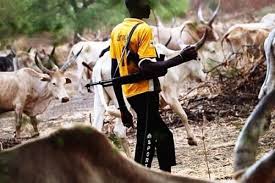


By Ifeyinwa China Onyeabo
Growing up, despite my dad being a civil servant, he was also a farmer on a small scale. You cannot afford not to be a farmer if you happen to come from my village. My mum too was a farmer despite being a teacher. Her yam harvest was always something of interest to her friends. My mum harvested yams as tall as a 4 year old. My father reared domestic animals. The type known as “atulu/aturu” in igbo (others may have a different name for it).
Farming is a well organised system in the village to the extent that you do not let these domestic animals roam round the village. They have the potency of destroying crops. Consequently, for things like rice, you keep them safe in their homes for 3 months. For things like yam, you keep them in until the yam stuck has grown tall enough round the stick meant for them so that these animals cannot cause any damage to it any more. For things like maize, you keep them in until the maize is harvested! During the period these animals are kept at home and not allowed to roam, it is the responsibility of the owner to provide food for them. I have gone through the rigours of this explanation so that you understand the system that operates in my area.
Other areas have similar approaches to safeguard their food plants. Town criers are saddled with the responsibility of spreading the message of “time to restrain your goats, sheep, cows, et cetera. Bottom line is that animals of any kind capable of damaging food plants are not allowed to roam about the villages. We are organised like that! Since we do not reside in the villa, my father took it upon himself to engage some cousins and extended relations, sometimes, outsiders to provide grasses for his own animals (i can count 11 as at that time) so that they do not starve while restrained. My father knew it was unconscionable, unjust and insensitive for him to allow his animals enter farms to destroy crops his people intends to harvest and feed on.
The government has no contribution to these efforts of my father. These animals were his private affair. He reaps the benefits and bears the losses. His private affair does not in anyway impact on his community. This brings me to the president’s proposed importation of grass for herdsmen and mapping out of grazing fields for their cattle. When did it become the responsibility of the government to teach a farmer how to rear his animals? Even if the government intends to offer some level of help to farmers, from where does the government derive the right to map out fields for these cattle rearers? What would happen at the period these villagers are supposed to keep their animals in their homes? I mean the planting seasons. Assuming without conceding that they would promise to live by these village rules of keeping their animals away from farms (farms exists even in the neighbourhoods inside the villa), what then stops them from having ranches?
What is the guarantee that these herdsmen would live by the village rules not to let these cows roam for the better part of the year when the planting season takes toll? I grew up to understand that it is the responsibility of an individual domestic animal owner to rein in their cattle and provide food for them. The profit you make when you sell these cattle are the gains of the years stress of trying to rear them. Should we also spoon feed a cattle rearer or an Alahji somewhere, who does not share the benefits of his future sales of these cattle with Nigerians? Who owns the cattle?–Alhaji Who can sell the cows?-Alhaji Who determines the price?–Alhaji Who keeps the proceeds?—Alhaji Does he pay tax?—–No sir! Then why should Nigerians be made to suffer the liabilities of cattle rearing in the light of the numerous evidences which abounds as to the sort of mayhem that has been unleashed on host communities by these herdsmen.
Now is the time for communities, especially, the people of Enugu State, whom it is said that their Governor is about mapping out fields for grazing following an attack by Fulani herdsmen on some communities in Enugu which led to the kidnap of two women by these Fulanis and a protest by the male members of the said community leading to an arrest of 76 of them, to say a big NO to their governor. If he does not know about the above issues raised, then it is your responsibility to educate him about farming. Dishing out the sum of 8.5 Million Naira to these people is no solution to this impending trouble that would most likely erupt if Fulani herdsmen are given a go ahead to operate as they want.
Remember the age long proverb that a man sent on robbery by his dad, breaks the door with his feet.The attitude of moist governors is nauseating, especially those who wants to act in accordance with the dictates of what was said in Abuja and not what would benefit their communities. Mr. President’s attitude as it relates to the issue of these herdsmen, with due respect, has been nothing but worrisome.But recall that Mr. President’s main asset before the election was allegedly a herd of cattle . He therefore sees the herdsmen as his comrades and this perhaps understandably explains why he sees them as most untouchables and their heinous crimes ironically irreproachable.





